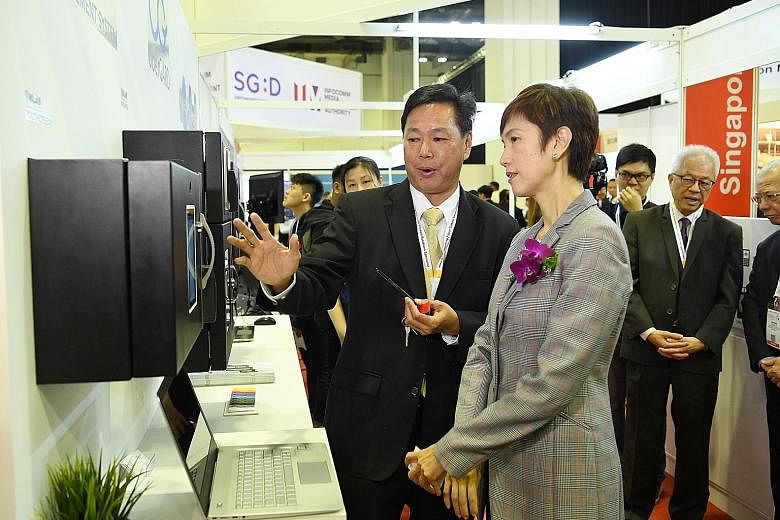An automated surveillance monitoring system that flags unusual activities such as fights has been deployed at seven shopping malls, as part of a $2.5 million innovation drive to help the security industry modernise.
This project is one of four pilots supported by the Government, to help firms develop solutions to meet increasing demand for security services, fuelled by the heightened security threat and growing number of buildings islandwide.
Security firms face challenges in meeting this demand as a result of their manpower-intensive operating models and stiff competition for workers, said Second Minister for Home Affairs Josephine Teo yesterday.
"There is an urgent need to re-imagine how security services are delivered to meet these challenges. Having more manpower alone is not the answer," Mrs Teo, who is also Manpower Minister, said at the opening of the Security Industry Conference at Marina Bay Sands.
"Instead, we need to deliver more intelligent solutions that use technology to augment manpower so that one person can do the job of many more effectively and potentially with better conditions and higher pay," she said.
Besides adopting technology, there is also a need to move away from an "output-based" contracting model, where buyers typically spell out the number of guards they need, to one based on outcomes, she added.
This will give security agencies more flexibility to meet customers' needs using both automation and manpower, said Mrs Teo.
Noting that the current approach leaves little room for security firms to do more than provide manpower, in turn fuelling low awareness of the technologies available, she added: "If we do not break this cycle, the industry's ability to innovate will always be limited by rigid headcount requirements."
The public sector will take the lead in adopting outcome-based security contracts, with most agencies doing so by 2020, said Mrs Teo.
Some, such as the Housing Board and Education Ministry, are prepared to start the switch before the middle of next year.
"In total, security contracts from government agencies amount to over $350 million every year, or about one-fifth of annual industry demand," she said.
"We hope this will create momentum and encourage private-sector service buyers to also adopt outcome-based security contracts."
To help the sector adapt, training will be available for procurement officers and the security industry, with a new course involving the Security Industry Institute set to have its first run next month.
The authorities will also ensure a ready pipeline of new technologies that can be incorporated into new outcome-based contracts, said Mrs Teo.
Another pilot involves a cloud platform where buyers can track their security agencies' performance. She added: "This platform will even make it easier for service buyers to administer outcome-based security contracts."


